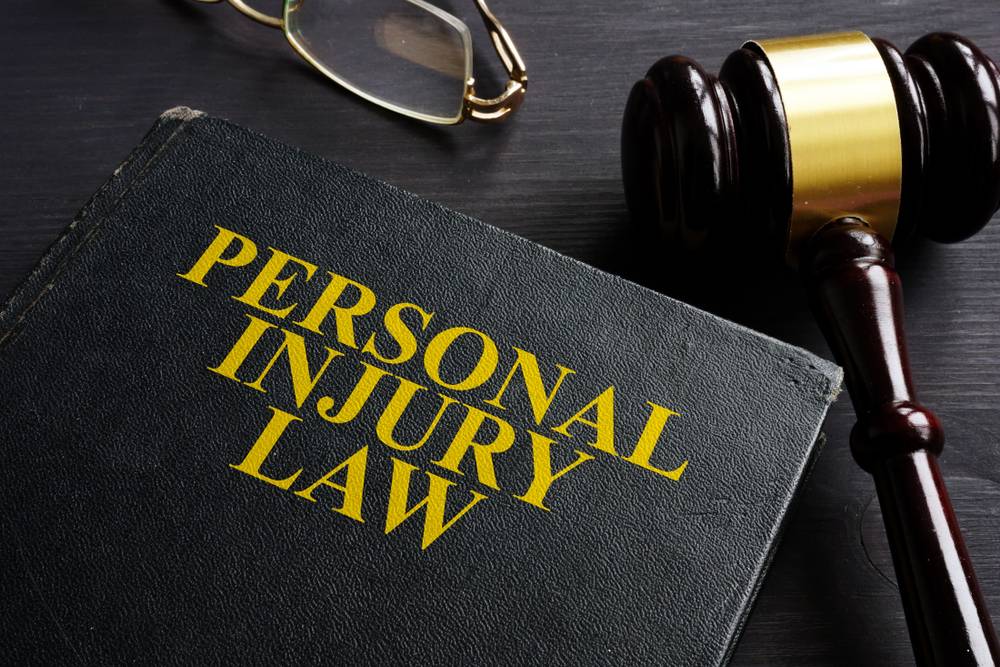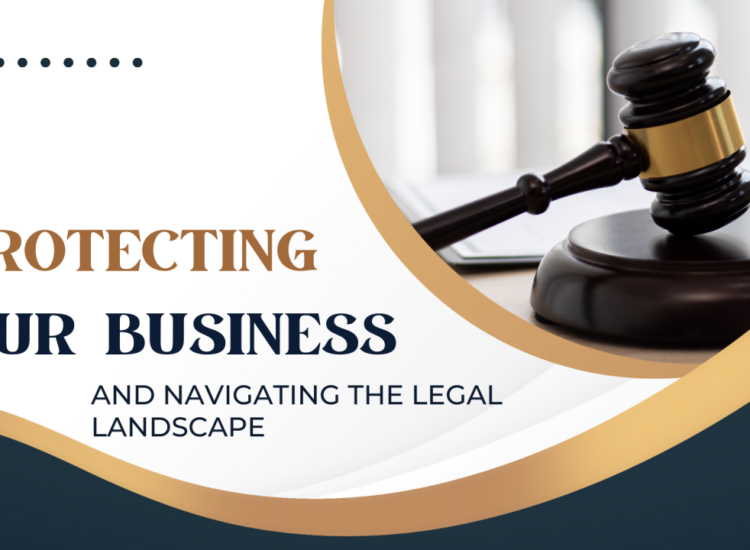Navigating the aftermath of an accident or injury can be a significantly challenging period for individuals. Alongside the physical discomfort, there are mental and financial burdens that often accompany such occurrences. This underscores the importance of having a comprehensive understanding of Personal Injury Law. As a decentralized platform, crypto.camelliabees.com aims to provide users with information and resources on seeking legal assistance in personal injury cases.
Toc

Personal Injury Law covers a wide range of incidents, including car accidents, slip and fall accidents, medical malpractice, workplace injuries, and more. It is a branch of law that focuses on holding responsible parties accountable for the harm caused to another person’s physical or mental well-being. This can include compensation for medical expenses, lost wages, pain and suffering, and other damages.
For individuals who have been harmed due to the actions of others, be it in a car collision, a slip-and-fall incident, or any other situation, having a firm grasp of personal injury law equips you with the necessary knowledge to pursue justice and compensation for your injuries.
What is Personal Injury Law?
Personal injury law is the legal framework that allows injured individuals to be compensated financially after they’ve sustained harm due to someone else’s intentional act or negligence. This facet of law ensures that victims are not left to shoulder the economic burden of their injuries, and those responsible are held accountable.
The Basics of Personal Injury Claims
There are many incidents that qualify as personal injury cases, but they all share a common legal tenet: negligence. To establish a successful personal injury case, the plaintiff (the injured party) must prove that the defendant (the party being sued) acted negligently and that this negligence directly led to the injury.
Components you’ll need to prove include:
- Duty of Care: The defendant had a legal responsibility to act reasonably to avoid causing harm.
- Breach of Duty: The defendant failed to fulfill that duty by acting or failing to act in a certain way.
- Causation: The defendant’s actions (or lack thereof) directly caused the injury.
- Damages: Actual damages were incurred as a result of the injury.
These elements are the foundation of personal injury law and can be complex. It’s suggested that if you find yourself in such a situation, you seek out a personal injury lawyer who can guide you through the legal process.
Types of Compensation of Personal Injury
In personal injury cases, compensation—or ‘damages’—can come in various forms:
- Economic Damages: Tangible losses like medical expenses, lost wages, or cost of rehabilitation.
- Non-Economic Damages: Intangible losses like pain and suffering, loss of consortium, or emotional distress.
- Punitive Damages: In rare cases, if the defendant’s conduct is found to be particularly egregious, additional sums might be awarded as a deterrent.
Statute of Limitations of Personal Injury
One key factor to keep in mind is the statute of limitations. This is the window of time during which you can legally bring your case to court. The statute differs from one jurisdiction to another, but typically, it ranges from one to three years from the date of the accident. Missing this deadline could mean losing your right to sue entirely. This is why it’s important to seek legal advice as soon as possible after an accident.
Damages of Personal Injury

Types of Damages
In a personal injury case, there are various types of damages that may be awarded to the injured party. These can be divided into three categories: economic, non-economic, and punitive damages.
Economic damages refer to tangible losses such as medical expenses, lost wages, and the cost of rehabilitation. These are quantifiable and can be easily calculated based on financial records or receipts.
Non-economic damages, on the other hand, are intangible losses that cannot be precisely measured. Examples include pain and suffering, loss of consortium (the loss of companionship or support from a spouse), and emotional distress. These types of damages aim to compensate the victim for the physical and emotional toll of the injury.
Punitive damages, also known as exemplary damages, are awarded in cases where the defendant’s actions were particularly reckless or malicious. These damages are intended to punish the defendant and serve as a deterrent to others who may engage in similar behavior.
Factors Affecting Damages
The amount of damages awarded in a personal injury case depends on various factors, including:
1. Severity of Injuries: The more severe the injuries, the higher the potential for economic and non-economic damages. For example, a person who suffered permanent disabilities due to an accident will likely receive a larger award than someone with minor injuries that heal quickly.
2. Fast and Future Expenses: Economic damages take into account both past and future expenses related to the injury. This can include medical bills, lost wages, and rehabilitation costs.
3. Pain and Suffering: Non-economic damages compensate for the physical and emotional pain and suffering caused by the injury. These damages are often subjective and can vary greatly depending on the individual’s experience.
4. Loss of Income or Earning Capacity: If an injury causes a person to be unable to work or reduces their earning capacity, they may be eligible for compensation for lost income.
5. Degree of Fault: In some cases, both parties may share fault for an accident. In these situations, damages awarded may be reduced based on each party’s degree of fault.
Proving Damages
In order to receive compensation for damages in a personal injury case, it is important to provide evidence and documentation to support your claims. This can include medical records, bills for treatment and rehabilitation, lost wages statements from employers, and any other relevant documents.
In addition to physical damages, it is also important to document the emotional toll of the injury and its impact on your daily life. Keeping a journal or diary of your experiences can help illustrate the pain and suffering you have endured.
Calculating Damages
Calculating damages in a personal injury case can be complex and may require the expertise of a legal professional. Generally, economic damages such as medical bills and lost wages are easily quantifiable. Non-economic damages like pain and suffering may be more subjective and require additional evidence to determine an appropriate amount.
In some cases, punitive damages may also be awarded if the negligent party’s actions were particularly egregious. These damages are meant to punish the wrongdoer and deter others from engaging in similar behavior.
Gathering Evidence
To build a strong case for your personal injury claim, it is crucial to gather as much evidence as possible. This can include medical records, police reports, witness statements, photographs of the accident scene and injuries, and any other relevant documents.
It is also important to obtain lost wages statements from employers or proof of lost income if you are self-employed. These documents can help determine the financial impact of your injury and provide evidence for economic damages.
In addition to tangible evidence, it is also helpful to keep a record of any conversations or interactions with insurance companies, medical professionals, and other parties involved in the accident. This can help support your claim and ensure that all information is accurately documented.
Why You Might Need a Personal Injury Lawyer

Navigating the legal system can be overwhelming, especially when you’re dealing with a personal injury case. That’s where a personal injury lawyer comes in. Not only do they have the knowledge and experience to handle your case, but they also take on the burden of navigating the legal process so you can focus on recovery.
Investigating Your Claim
A personal injury lawyer will thoroughly investigate your claim, gathering pertinent evidence and documentation to support your case. This may include medical records, police reports, witness statements, and more.
Ensuring Fair Compensation
Insurance companies are notorious for offering low settlements or denying valid claims altogether. A personal injury lawyer will fight for fair compensation on your behalf by negotiating with the insurance company or taking your case to court if necessary.
Handling Legal Procedures
Personal injury cases involve a lot of legal procedures, such as filing paperwork, meeting deadlines, and attending court hearings. A lawyer will handle all of these tasks for you, ensuring that everything is done correctly and in a timely manner.
Always research and select a lawyer who specializes in personal injury and has a strong track record of securing fair compensation for their clients.
Guide to find the law office for personal injury

- Start by asking for recommendations from friends, family, or acquaintances who may have hired a personal injury lawyer in the past. Their first-hand experience and opinion can help you narrow down your options.
- Use online resources such as legal directories or review websites to find law offices that specialize in personal injury cases. Pay attention to reviews and ratings from previous clients.
- Contact your local bar association for a referral to a reputable personal injury lawyer in your area.
- Consider the size and resources of the law office. A larger firm may have more experience and resources, but a smaller firm may provide more personalized attention to your case.
- Schedule consultations with potential lawyers to discuss their experience, fees, and approach to handling personal injury cases. This will give you a better understanding of how they can help you.
- Ask about their success rate and if they have handled cases similar to yours in the past. A lawyer with experience in your specific type of case may be more effective in securing fair compensation for you.
- Trust your gut and choose a lawyer who makes you feel comfortable and confident in their abilities to handle your case.
- Be sure to review the lawyer’s fee structure and any potential expenses, such as court fees or medical record fees, before making a decision.
- Once you have selected a lawyer, make sure to thoroughly review and understand all legal documents before signing them.
- Stay in communication with your lawyer throughout the entire process and provide any necessary information or updates to ensure the best outcome for your case. It is important to have open and clear communication with your lawyer to build a strong and trusting relationship.
- Remember that hiring a personal injury lawyer can greatly increase your chances of receiving fair compensation for your injuries, so it is worth taking the time and effort to find the right one for you.
- In addition to finding a lawyer, it is important to also take care of yourself and prioritize your health during this challenging time. Seek proper medical treatment and support from loved ones as you navigate the legal process.
- Lastly, always remember that while financial compensation can provide some relief, it cannot undo the physical and emotional trauma caused by a personal injury. Be patient with yourself and seek professional help if needed to cope with any lingering effects. Your well-being should always be a top priority.
Conclusion
Personal injury law stands as a safeguard for those harmed due to others’ actions. It’s important for individuals to know their rights and the avenues open to them for seeking redress. While money can’t turn back time, the justice system can provide a means to alleviate the burdens that injuries impose.
If you’ve been injured and are considering pursuing a legal case, remember time is of the essence. Seek medical attention, document everything, and consult with a reputable personal injury lawyer to understand your options.
“Your recovery is our commitment. With Personal Injury Law, you are never alone in your fight for justice and fair compensation.”








